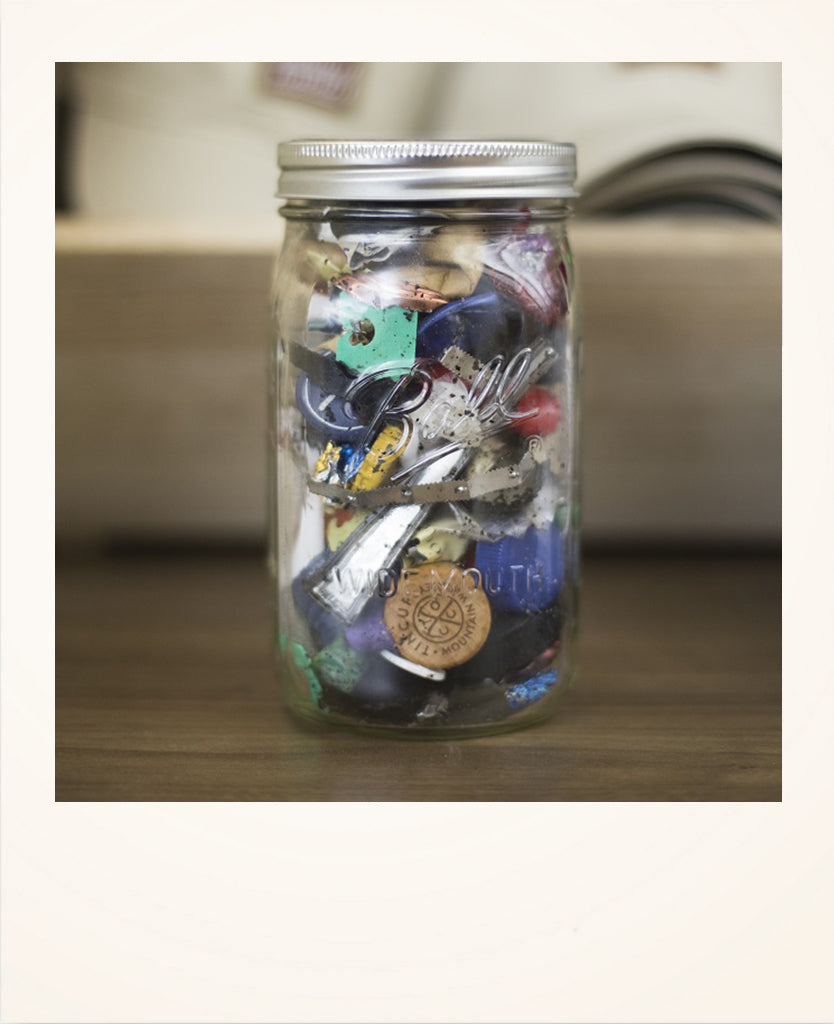The definitive guide to reducing your waste in your daily life
According to a recent report by the British organization Verisk Maplecroft, more than 2.1 billion tons of waste are produced each year. To give you an idea, this would be equivalent to 800,000 Olympic-sized swimming pools filled with waste per year . Of that waste, only 16% is recycled . We live in the age of consumption. It's no surprise to learn that Western European and North American countries generate the most waste per capita. The higher the income , the greater the economic development, and the greater the economic development, the greater the consumption.
Consumerism is undoubtedly a determining factor in the problem of urban solid waste . More and more products are being generated with compositions that are foreign to natural materials, more and more single-use products, and more and more packaging and containers. But behind all this lies a lack of public awareness .
On the occasion of European Week for Waste Reduction (EWWR), today we want to talk to you about the changes you can implement in your daily life to reduce your waste.
It is true that we should aspire to fulfill what the phrase says: ' the best waste is the one that is not produced ', but since it is about taking small steps to end up taking strides, we will start with the phrase that says: ' change your habits, reduce your waste ' , and let's try to reduce it as much as possible.
The EWWR bases its actions on three pillars. The three Rs: waste reduction, reuse of materials/products, and recycling . These actions are structured around five major themes:
- Raise awareness about excess waste – explaining the concept of waste prevention in environmental, sociological, and economic terms; encouraging everyday actions, etc.
- Produce better – avoiding waste at different stages of the product lifecycle, including waste associated with the company's activity, including office waste, etc.
- Consume better – promoting responsible purchasing behavior , prioritizing sustainably designed and eco-labeled products, prioritizing bulk purchases, and encouraging renting and borrowing.
- Extending the life of products – by promoting and supporting repairs and donations, giving objects a second life, etc.
- Throw away less waste – improving daily habits, avoiding food waste, monitoring product expiration dates, promoting self-composting, etc.
We've created this infographic with concrete actions you can take. Print it, download it, share it. Do whatever you want with it. The important thing is to incorporate as many actions into your daily life as possible. Obviously, we couldn't compile them all, so if you have more, add them to the list! The more we do for our planet, the better.
List of actions:
Reduce, reuse and recycle
- Avoid consuming excessively packaged products
- Take your cart and reusable bags when you go shopping.
- Don't throw away! Reuse everything you can: paper, cardboard, bags, etc.
- Reject advertising offered to you on the street – if you're interested, take a picture!
- Buy better quality clothes so they last longer and repair them when they get damaged.
Feeding
- Buy local products
- Buy in bulk
- Don't buy food that comes in white cork trays.
- Avoid bottled water
- Use glass whenever possible and avoid plastic containers.
- Don't buy anything bottled in PVC
- Buy fresh
- Do not buy foods that come over-packaged (individual bags, etc.)
Cleaning
- Buy detergents without phosphates or surfactants
- Buy refillable detergents
- Use the minimum amount of detergent necessary – that’s plenty!
- Use fabric softener only occasionally
- Use vinegar to scrub floors, degrease, etc.
- Don't buy air fresheners – use aromatic plants
Toiletries and cosmetics
- Reject over-packaging
- Buy bars/tablets (deodorants, soaps, etc.)
- Do not use anti-dandruff products made from selenium sulfide.
DIY
- Do not waste or generate unnecessary waste
- Water-based paints are much less toxic and polluting.
- Do not use aerosols – Apply products with a brush, paintbrush or similar.
- Take the waste from these products to clean points
Batteries
- If you can avoid it, do not use battery-powered devices (if they are automatic or solar-powered, even better)
- Use rechargeable batteries – they are more expensive but much more cost-effective in the long run
- Avoid button batteries
- Get rid of them by depositing them in containers or at collection points.
Insecticides/Herbicide
- Do not use aerosols
- Turn to home remedies if you have pests
- To repel insects, use half a lemon with cloves inside, or basil pots on the windowsills.
- For the body: use lemon and lavender essential oil mixed with some essential oil.
Clothes
- Natural fabrics (wool, cotton, linen) are much easier to recycle and are less polluting.
- Buy second-hand or sustainable clothing
- Don't throw away your clothes just because they're no longer fashionable.
- Give or donate your clothes to charity
- Give other uses to clothes you no longer want: kitchen rags, etc.




